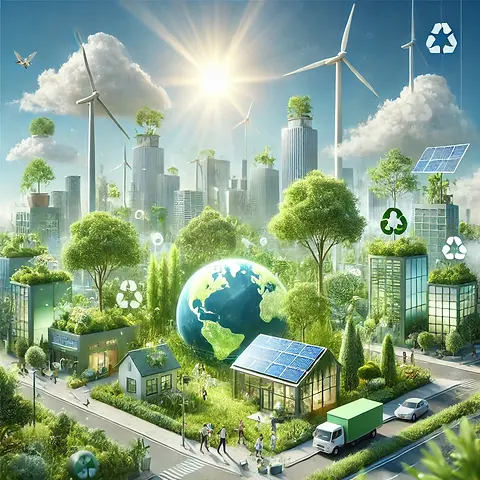Sustainable Development
Sustainable development is a guiding framework that seeks to balance economic growth, environmental protection, and social well-being, ensuring that the needs of the present are met without compromising the ability of future generations to meet their own needs. Central to this vision are the Sustainable Development Goals (SDGs), set by the United Nations, which provide a blueprint for addressing global challenges such as poverty, climate change, and inequality. For businesses, adopting sustainable development practices aligns with Environmental, Social, and Governance (ESG) criteria, a framework increasingly used by investors and stakeholders to evaluate long-term resilience and ethical impact[1][2].
Technological advancements play a crucial role in the sustainable development landscape. From renewable energy innovations like solar and wind power to energy-efficient designs and smart grids, businesses are now empowered to significantly reduce their environmental footprints while optimizing operational efficiency. Sustainable technology strategies have proven to drive business growth while enhancing ESG performance, as companies can integrate greener technologies to cut emissions and increase transparency[5]. This positions businesses not only as leaders in environmental responsibility but also as innovators in an increasingly eco-conscious marketplace.
By embracing sustainable development principles, businesses not only contribute to a healthier planet but also build customer loyalty, attract responsible investments, and gain a competitive edge in their industries. The World Development Goals (WDGs) encourage the global adoption of these practices, reinforcing the message that sustainable development is not just a moral imperative but a smart business strategy[1]. With growing consumer demand for transparency and environmental stewardship, integrating ESG metrics and leveraging technological advancements can lead to long-term profitability and brand resilience.
